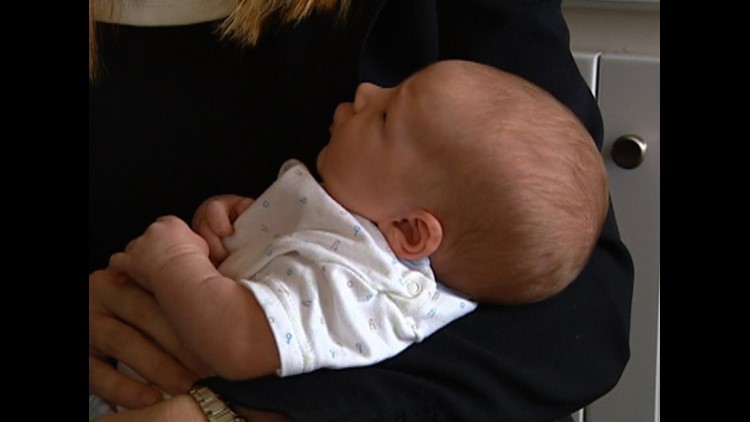What is the Safe Havens Act for Newborns?
An act that creates a safe alternative to leaving infants in unsafe places
QUESTIONS & ANSWERS from Child Protective Services for Connecticut’s Families
Q. What is the Safe Havens Act for Newborns?
A. The Act is a new program that allows a parent to voluntarily give up custody of an infant age 30 days or younger, to the nursing staff of an emergency room. The parent will not be subject to arrest for abandonment. This act does not protect the parent from being arrested and criminally prosecuted if abuse or neglect has occurred.
Q. What will happen when I bring my infant to the emergency room?
A. A nurse will meet with you in a private area and ask you to provide information about your child’s medical history. The nurse will also ask you questions about yourself such as your name and address. You do not have to answer any questions.
Q. What will happen next?
A. You will be given a packet containing information on your rights and how to contact the Department of Children and Families.
Q. What will happen to my infant when I leave the hospital?
A. Within 24 hours of your leaving the hospital, the nurse will be required to contact the Department of Children and Families who will take immediate custody of your infant. DCF will then begin to develop a plan of permanent care for the child. This plan will involve a court hearing to apply for legal termination of your parental rights to free the child for adoption.
Q. Will DCF contact me or the other parent when they go to court?
A. DCF is required by law to notify both parents of its intent to keep custody of the infant and to seek termination of parental rights. If you have given your name and address or the name or address of the other parent, a court officer will notify you and the other parent of the court action and the first hearing date. If your names and/or addresses are not known DCF may publish notice in the local newspaper and that will be the only notice you will receive.
Q. What if I change my mind and want to regain custody of my child?
A. A request to be reunified with the child should be made to DCF as soon as possible. The parent should also apply to the court for an attorney. This is very important because the court can terminate your parental rights at the first hearing.
Q. What is a termination of parental rights and when does it occur?
A. It means that the court will declare that you are no longer the parent of the child. You will be unable to make any decisions regarding the infant and the infant will be freed for adoption. The court will schedule a hearing within 30 days of DCF’s application and termination of parental rights can be granted at the first hearing.
Q. How long will it take for adoption to be completed?
A. If the court grants the termination petition, the court will appoint DCF statutory parent and order DCF to submit a plan for adoption within 30 days. The court will continue to review the plan until adoption is finalized. DCF will file a petition in the local probate court, and after the hearing the probate court may finalize the adoption.
Q. What if I change my mind after the court process begins?
A. If you change your mind you should seek legal advice. A parent has the right to an attorney in any neglect, uncared for or termination court action. If you cannot afford an attorney the court will appoint one for you. You may call your local juvenile court to apply for the services of an attorney.
Q. What should I do if I have more questions after I leave the hospital?
A. Contact the Department of Children and Families Hotline at 1-800-842-2288
Q. Where can I get more Help?
A. Infoline: This is a free telephone information service that can offer referrals to many resources in Connecticut including your local juvenile court. An Infoline caseworker will be able to direct you to a service in or near your community. Call Infoline at 211



